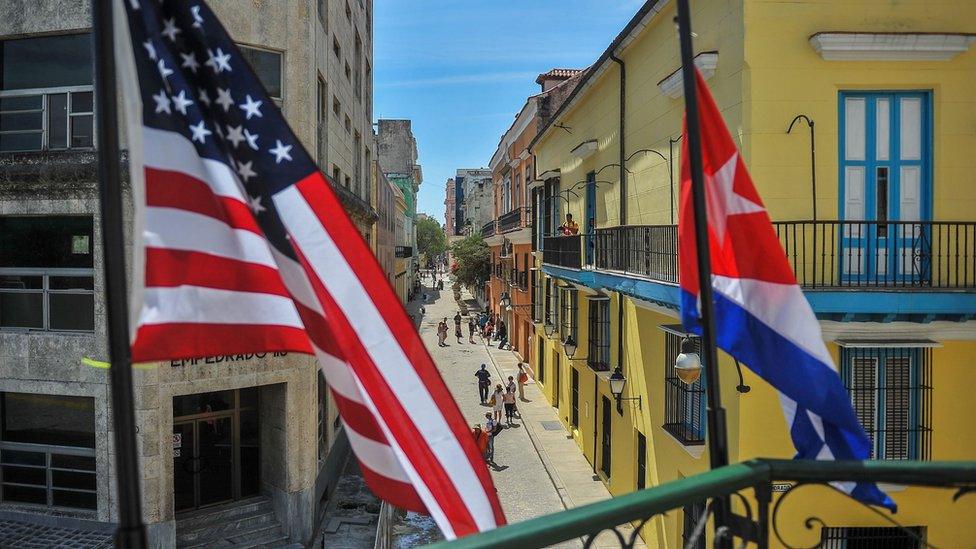Sixteen US staff in Cuba hurt in 'acoustic attack'
- Published
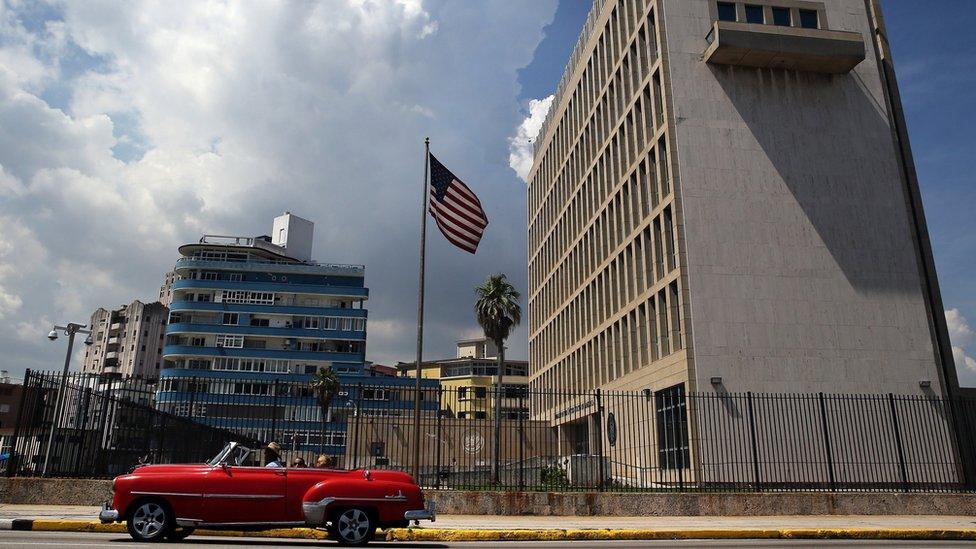
Embassy staff noticed symptoms late last year
At least 16 US government employees were treated for symptoms after a possible acoustic attack targeting embassy staff in Cuba, the state department says.
US media reports say the symptoms range from hearing loss to "mild traumatic brain injury", which could include concussion or headaches.
A spokeswoman said the attacks seemed to have stopped.
Cuba denied involvement and said it was investigating the reports.
The attacks were first reported earlier this month when the US expelled two Cuban diplomats from Washington. But it was not clear until Thursday how many US employees had been affected.
The Associated Press reports, external that the sonic devices used may have been emitting inaudible sound waves that can cause deafness.
"We can confirm that at least 16 US government employees, members of our embassy community, have experienced some kind of symptoms," State Department spokeswoman Heather Nauert said.
"We take the situation extremely seriously," she added.

What can sound do to ears? by Richard Warry, BBC head of specialist journalism
Intense sound can cause structural damage to the receptor hair cells in the inner ear which convert sound into brain activity.
There is also evidence that noise exposure can lead to degeneration of the nerve fibres that make contact with the hair cells, which means that even if the hair cells remain intact, the transmission of information to the brain can be disrupted.
However, frequencies that are inaudible to humans do not transmit much mechanical energy to the ear's sensitive parts, and so experts believe that it would be difficult to use them to damage hearing.
There is limited evidence that exposure to ultrasonic sounds above the range of human hearing may be associated with symptoms such as excessive fatigue, headache and irritation.
A German study has also found that the ear may be temporarily more prone to damage after being exposed to low-frequency sounds.

US embassy staff and at least one Canadian began to notice symptoms late last year.
The victims, some of whom have been withdrawn from Cuba, have been treated in the US and by US doctors in Cuba.
US Secretary of State Rex Tillerson has described the incident as a "health attack".
The incidents appeared to continue even after the US staff complained of them and as the Cuban authorities were investigating the cause, the BBC's Will Grant in Havana says.
There are currently investigations under way by the Americans, the Canadians and the Cubans, and security has been stepped up around the diplomats' residences in Havana.
Security analysts believe a third country with hostile relations with the US may be involved but no clear picture has yet been established.
Washington and Havana only re-established ties in 2015, following 50 years of hostilities between the two countries.
- Published10 August 2017
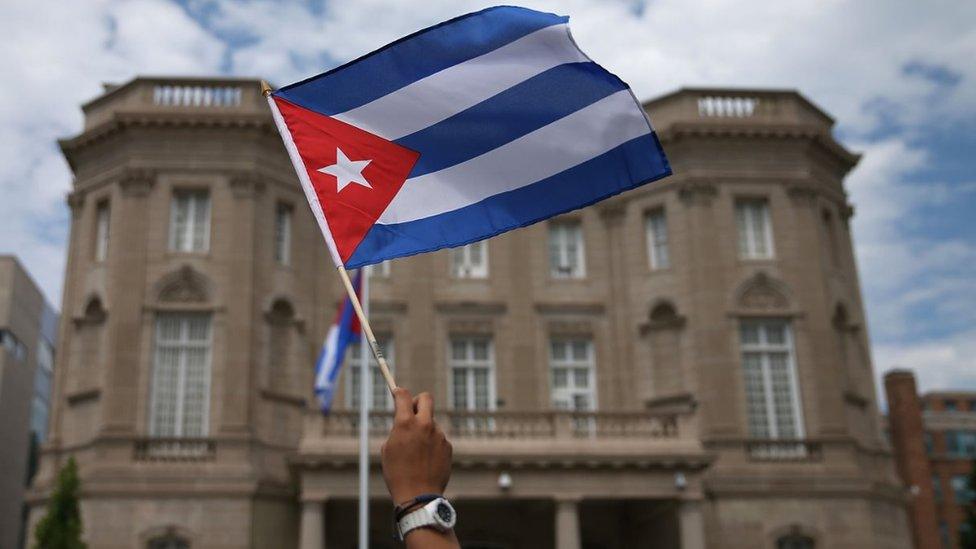
- Published29 August 2023
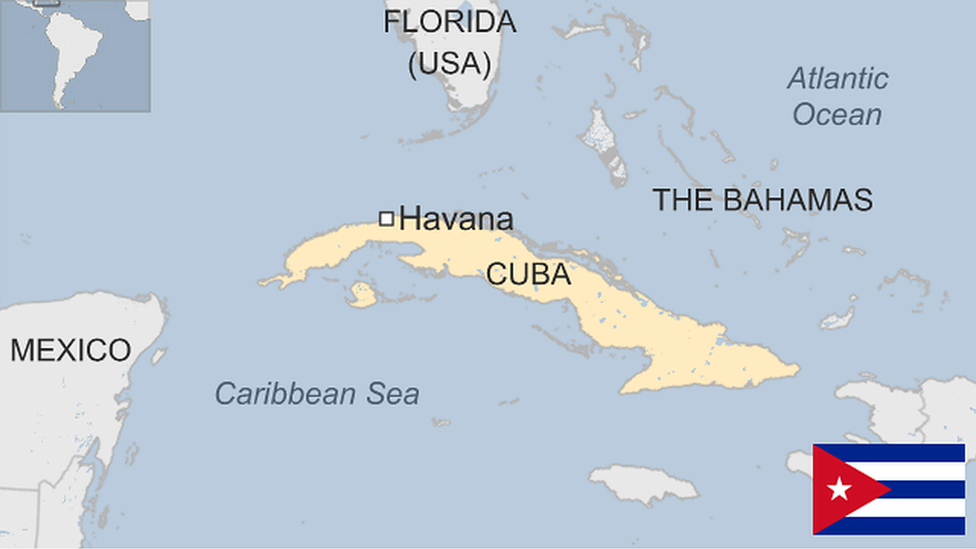
- Published17 June 2017
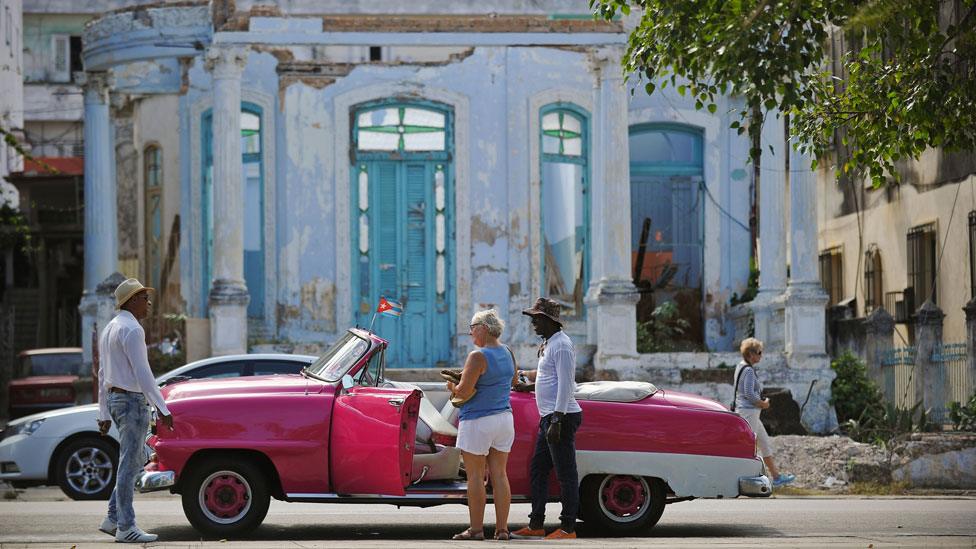
- Published20 March 2016
- Published14 August 2015
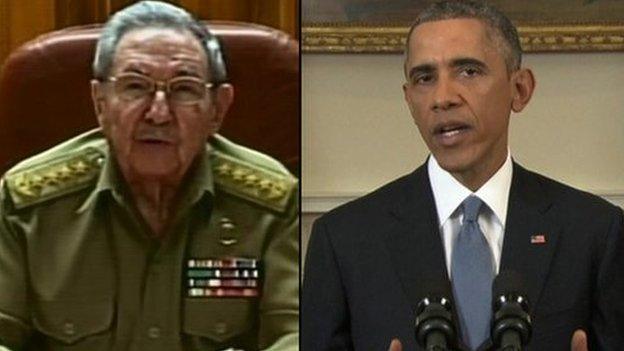
- Published1 July 2015
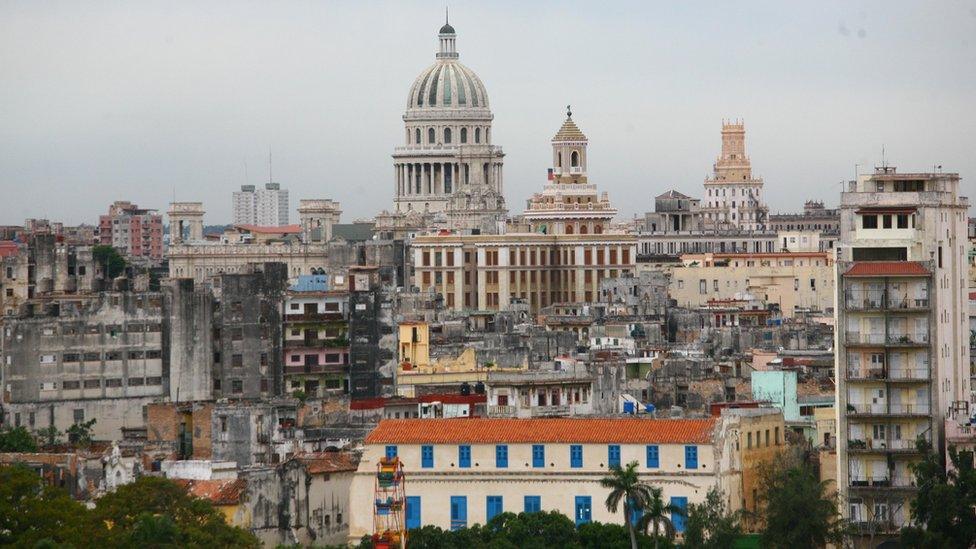
- Published10 June 2017
